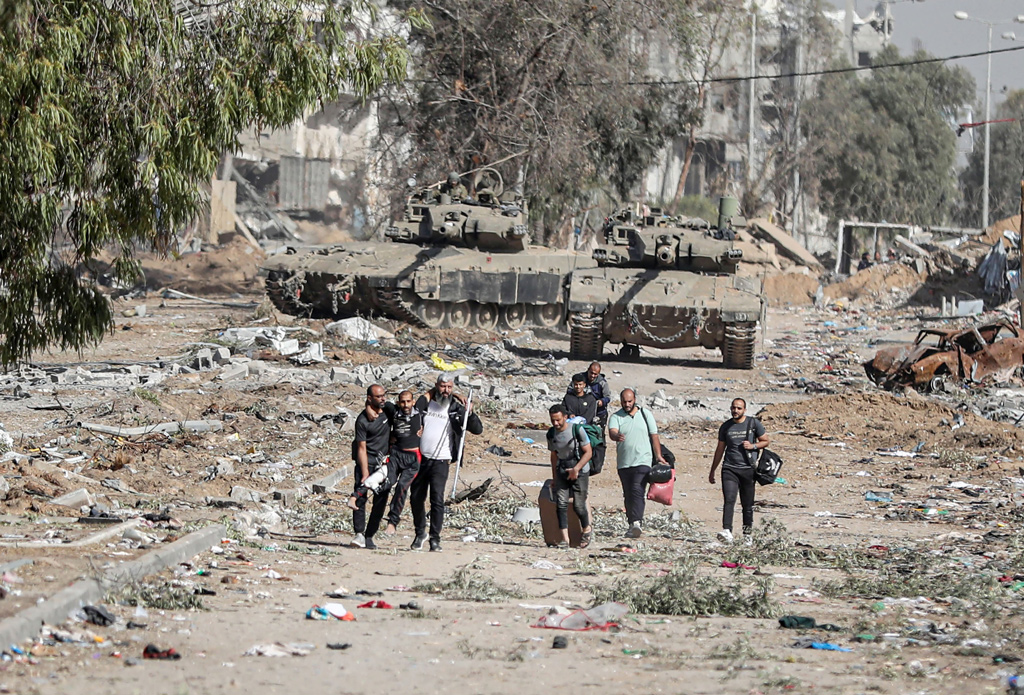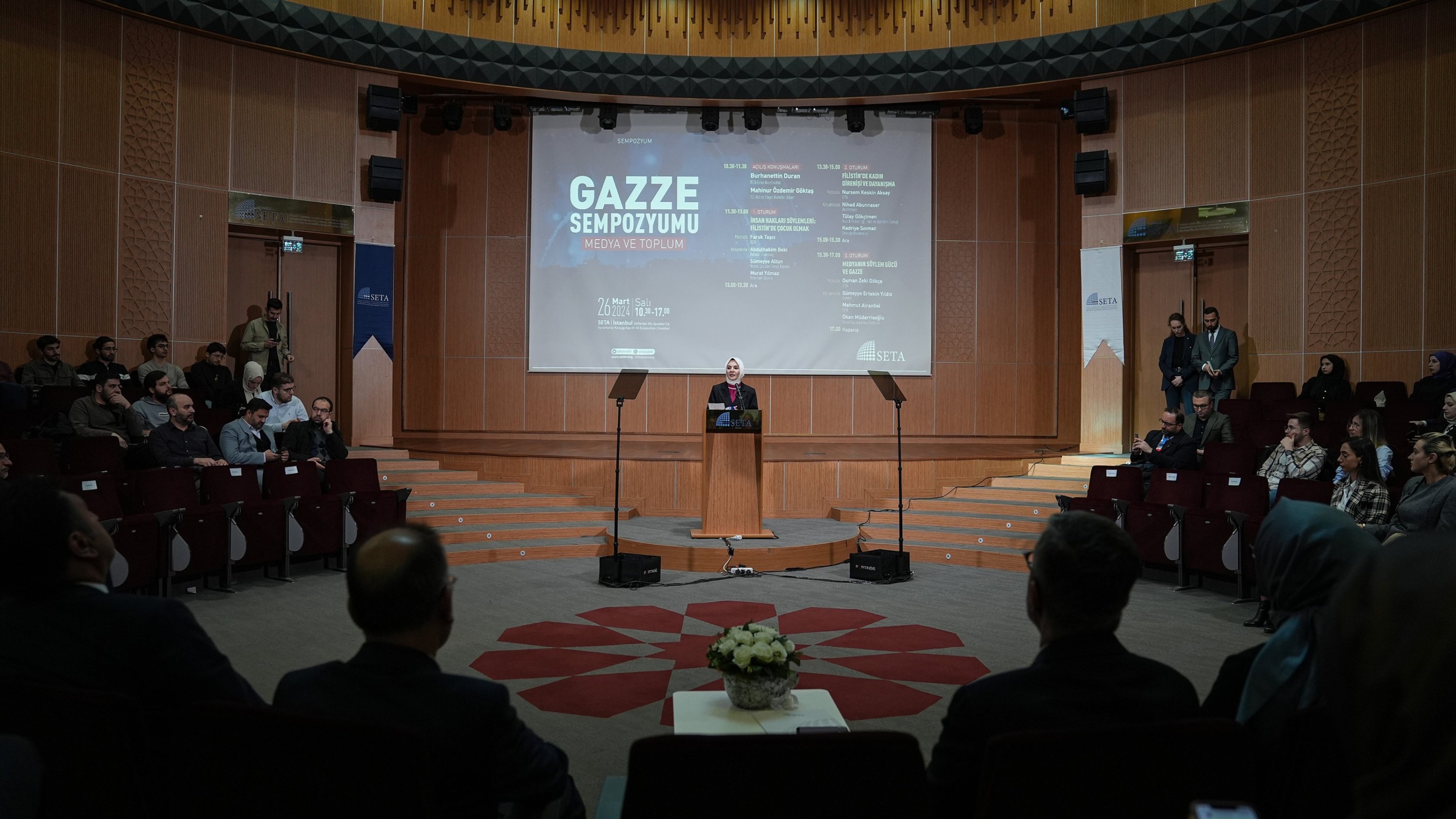The prisoner exchange agreement reached between Israel and Hamas marks a significant turning point in the course of the war. The agreement implies that Israel has stepped back from its pledge to halt operations until all prisoners are released. However, it is clear that Israeli attacks will continue after a brief hiatus. Predicting that the release of all Hamas prisoners will take months, if not years, it is not difficult to anticipate that the conflict will intermittently intensify and persist for an extended period. The events since October 7 have become the foremost agenda item in the region, transforming the pursuit of a solution to the Palestinian issue into a new driving force. Therefore, in the coming period, we can expect the Gaza war to continue with its ups and downs, while diplomatic efforts for a final resolution intensify.
PERPETUAL STATE OF WAR IN GAZA
We know that Israel will not withdraw from Gaza without significantly debilitating Hamas's military infrastructure and capacity, even if it means committing war crimes. On the other hand, it is evident that Israel's sustainability in ignoring international public pressure, backed by Washington and Western capitals, is limited. Therefore, Israel will attempt to downplay its war crimes by highlighting its efforts to protect civilians, allow humanitarian aid passage, and claim a temporary cessation of operations for the prisoner exchange. While seeking to reduce international public outrage, Israel will strive to prevent Hamas from regaining strength and continuing its attacks by persisting with military operations. Knowing that eliminating Hamas is not feasible, Israel is likely to create a perpetual state of war in Gaza in the coming period.
Israel will face difficulties in determining who will govern Gaza while continuing its operations against Hamas. The Palestinian Authority will be reluctant to manage the cities destroyed by Israel. While the Netanyahu government claims it can govern for a certain period, stating that it will not allow Hamas to return to power and considering the occupation of Gaza, it is creating a challenging situation. If Israel proceeds with the occupation of Gaza, against Washington's opposition, it will assume the responsibility for the administration of the Gaza Strip and, therefore, the responsibility for the humanitarian crisis. Opting for a more likely scenario, Israel may choose to establish a puppet government, allowing it to continue military operations when necessary without taking on the responsibility.
IRAN'S STRATEGIC POSITION
Israel's Gaza war has demonstrated that the Palestinian issue can no longer be ignored, and regional normalization is impossible without resolving this problem. Before October 7, we knew that the United States had informally reached an understanding with Iran on the nuclear issue, and within this framework, Tehran refrained from provocative steps in uranium enrichment. By releasing $6 billion in Iranian funds in the context of the prisoner exchange agreement, Washington took a step to reduce tension with Iran. Iran, which has entered a normalization process with Saudi Arabia, has shown that it is in a more advantageous position in the region after Hamas's attack on Israel. Aware of its strength against Israel through Hezbollah in Lebanon, Shia militias in Iraq and Syria against the United States, Iran does not hesitate to use this power as a deterrent. Iran's strategic position has strengthened without engaging in an all-out war against Israel and the United States.
SAUDI ARABIA'S PRIORITIES
In contrast, before October 7, Saudi Arabia sought security agreements with the United States and nuclear technology in exchange for normalization with Israel. With the outbreak of the Gaza war, normalization with Israel became impossible in the short term, and Saudi Arabia is now forced to prioritize the resolution of the Palestinian issue. Taking steps in this direction by convening the Islam-Arab summit in Riyadh, the Saudi leadership neutralizes the closest potential threat by normalizing with Iran and simultaneously negotiates with Washington on a comprehensive package to secure its security concerns. Unhesitant to dance with China when necessary, Saudi Arabia attempts to turn Washington's efforts to break China's influence into an opportunity for Saudi interests. By unequivocally supporting Israel, Washington weakened its hand in negotiations with the Saudis, as improving the situation of the Palestinians, a condition for normalization with Israel, has become an imperative.
We are entering a period where the Gaza war will continue in some form, Iran's rivalry with the United States and Israel will be managed in a controlled manner, and Saudi Arabia will be obliged to take the lead in Israel-Palestine peace. The realities revealed in the strategic picture that emerged in the region after October 7 underscore that the establishment of a stable Middle East order is impossible without resolving the Israel-Palestine issue. We are leaving behind a period where regional countries pursued their national interests and embarked on the path of normalization with Israel, trying to forget the Palestinian issue under the influence of Washington's suggestions. The greatest regional obstacle to Saudi Arabia's focus on securing its security concerns and concentrating on economic development is highlighted as the Palestinian issue. The unsolvability and conflict processes that strengthen Iran's position are evident as not serving the interests of countries such as Saudi Arabia and Türkiye. Therefore, the resolution of the Palestinian issue emerges as an indispensable prerequisite for establishing a new order in the Middle East.
[Yeni Şafak, November 21, 2023]







